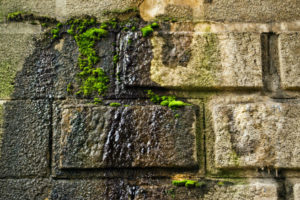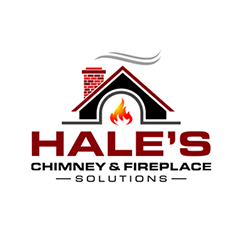We’ve had a lot of rain in the Dallas area lately and with rain, comes a number of challenges. Flash floods caused by rain can lead to water in the basement and damage your home’s floors and walls. It may seem that your chimney masonry should be immune to rain since it’s made out of brick and mortar. However, water can have serious effects on the health of your chimney masonry. Your chimney is constantly exposed to whatever mother nature tries to throw at it. Although wind and heat can have some effects on your chimney health, water is usually the leading culprit leading to a number of masonry issues. These issues can range from crumbling brick and mortar to water stained walls, to rusting damper. At Hales Chimney & Fireplace Solutions our experts can help you understand the importance of making sure that your chimney is protected from water.
Chimney Leak Causes
Stopping chimney leaks is important because if the water is allowed to come into contact with your masonry, it can seep into the brickwork and mortar. If water is allowed to pool up inside your masonry, it can slowly dissolve it from the inside out. This can become a greater issue when it gets cold enough to freeze. When the water inside your masonry expands it can weaken and crack your brickwork. Although there are a wide variety of issues that could cause your chimney to leak, some of the more common issues that we run across include:
Faulty Chimney Cap
A chimney cap is usually considered your chimneys first line of defense against moisture. It protects rain from falling inside of your chimney by covering up the opening, while still allowing smoke and gases to exit. If rain is allowed to leak into your chimney it can mix with creosote and create unpleasant odors. Moisture can also seep through tiny cracks in your masonry, causing water stains on your brickwork and home’s walls. If your chimney crown is damaged or missing, it will need to be replaced right away.
Flashing
Flashing is a thin metal strip that lines the gap where your chimney comes out of your home’s roof. This protects that gap from water running into it. Because it is in an exposed location, your flashing can become loose, and rusty. If this happens, water can’t be stopped from entering the seams where your chimney exits your home, causing water to run down the outside of your chimney and into your home.
Condensation
Condensation works against your chimney. When there is a difference in temperature between the chimney and adjacent rooms, moisture inside of your chimney can condense on the walls adjacent to your chimney, ruining framework, wallpaper, and drywalling. This usually occurs when a chimney isn’t lined well. If your lining isn’t protecting your chimney, you will need a chimney relining.
Make sure that your masonry is able to handle rainy weather. We offer a wide variety of leak prevention services, so call Hales Chimney & Fireplace Solutions today at 972-563-6851 or contact us to talk with one of our ventilation experts.
